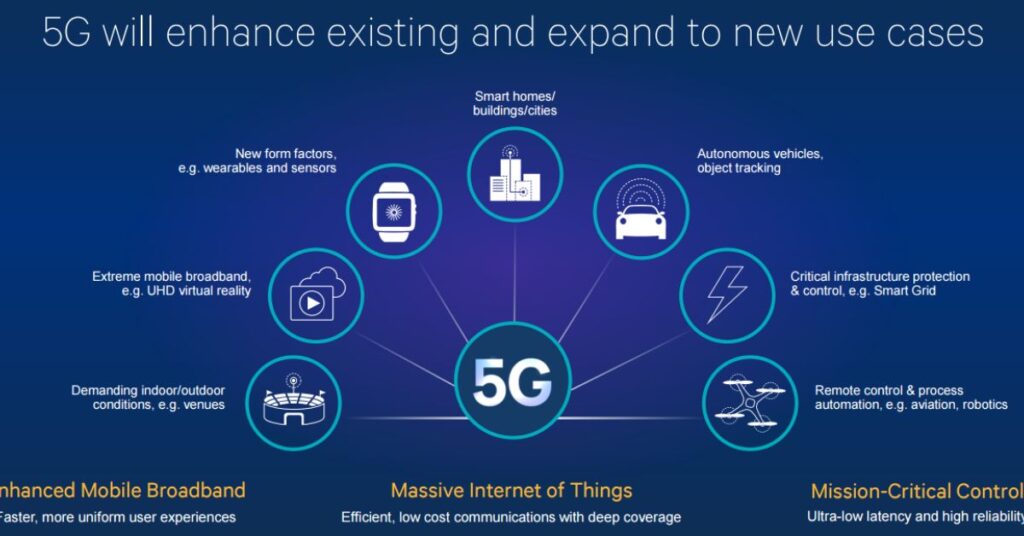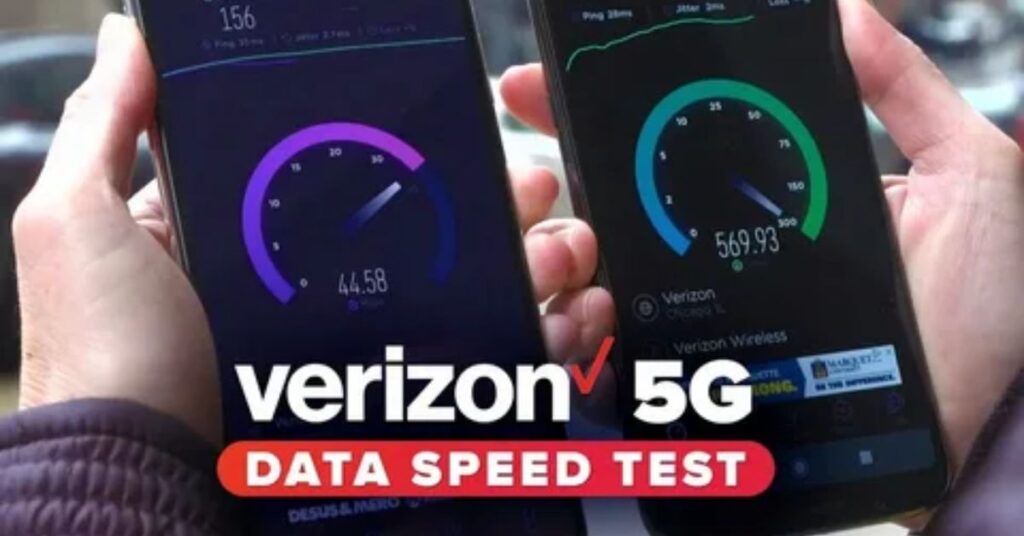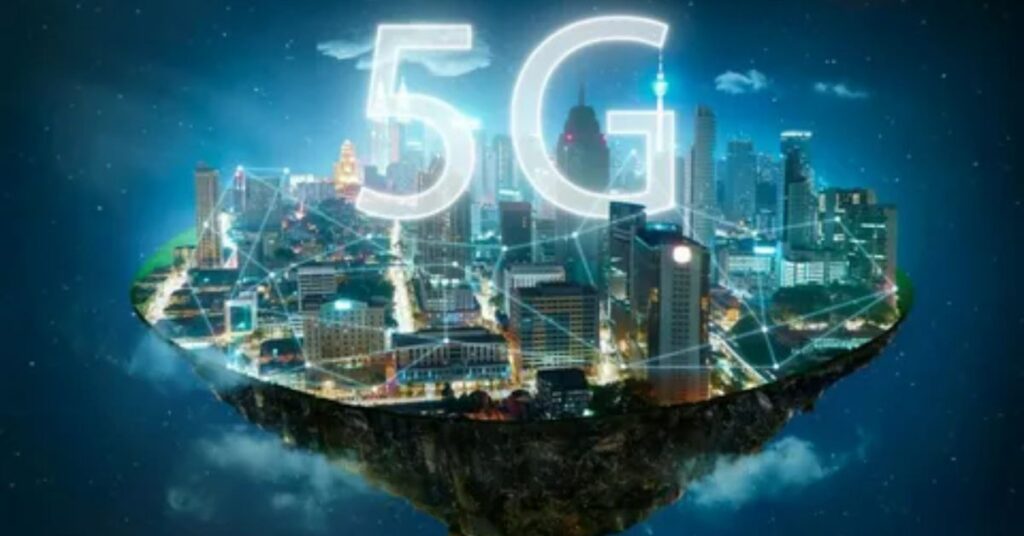5G technology is the fifth generation of mobile networks, offering a leap forward in wireless connectivity. It provides high-speed data transfer, enabling faster download/upload speeds and improved network efficiency. Unlike its predecessors, 5G networks are designed to support various applications, from IoT devices to autonomous vehicles.
The 5G rollout is reshaping how we interact with technology. This disruptive technology paves the way for real-time communication, cloud interactions, and smart technology. With its ability to handle massive data loads, 5G implementation is critical for the future of digital transformation.
5G technology can deliver download speeds up to 100 times faster than 4G, making it ideal for data-heavy applications. It also reduces lag, which is crucial for real-time services like gaming, video calls, and autonomous vehicles. As 5G networks roll out globally, it will open up exciting new opportunities.
Why 5G is Important: A Game Changer for the Future
5G networks are not just about faster speeds. They are about enabling next-gen connectivity that supports industrial automation, smart cities, and augmented experiences like VR and AR. This disruptive technology is key to unlocking innovations in machine learning (ML), real-time data processing, and tech adoption.
The importance of 5G deployment goes beyond consumers. For industries, it ensures network optimization and seamless data management. It facilitates sustainable infrastructure and empowers businesses to explore new business models with private networks and edge computing advantages.
You May Also read this Blog: Be the Change: Powerful Actions to Tackle Climate Change Now
Key Features of 5G Technology

One of the standout features of 5G technology is its low latency, which allows for real-time communication. This is a game-changer for applications like autonomous vehicles and remote work. Additionally, network slicing enables operators to create customized virtualized networks for specific use cases, ensuring higher efficiency.
5G networks also boast enhanced signal penetration and connectivity in remote areas. This is made possible by small cells and advanced radio frequencies. Network expansion with the 5G standard ensures improved mobile broadband and data transfer speeds, essential for both consumers and industries.
| Feature | Benefits |
| Low Latency | Real-time interaction |
| High Bandwidth | Faster downloads/uploads |
| Network Slicing | Tailored solutions for industries |
| Small Cells | Better coverage in hard-to-reach areas |
Comparing 5G to Previous Generations: What Sets It Apart?
The transition from 4G to 5G brings significant improvements. While 4G networks focus on mobile broadband, 5G networks deliver faster transmission speeds and lower error rates. This enhances data processing and allows for seamless cloud interactions.
Unlike earlier generations, 5G technology is built for IoT devices, edge computing, and smart factories. The ability to handle billions of connected devices makes it indispensable for business innovation and industrial automation. Its scalability ensures that it can adapt to future demands.
Advantages of 5G for Businesses and Consumers
For businesses, 5G implementation opens doors to corporate networks with improved network efficiency. Enhanced security ensures safe data processing and data privacy. Industries can leverage 5G networks for private network security, real-time data processing, and edge computing advantages.
Consumers benefit from high-speed data transfer, low latency, and immersive augmented experiences. 5G technology supports remote work, smart cities, and advanced IoT devices. This combination of features makes it a cornerstone of modern living.
Potential Challenges and Disadvantages of 5G
Despite its advantages, the 5G rollout comes with challenges. The high cost of infrastructure upgrades and the need for new cell towers pose significant hurdles. Additionally, connectivity issues in remote areas remain a concern.
Security is another critical issue. Cybersecurity vulnerabilities and risks to data privacy must be addressed. Efforts to enhance network security are vital for ensuring the reliability of wireless technology.
The Future of 5G: Opportunities and Emerging Use Cases
The future of 5G technology lies in its ability to support smart technology and augmented experiences. Emerging use cases include autonomous vehicles, industrial automation, and smart factories. These advancements rely on low latency and real-time communication.
5G deployment will drive innovations in machine learning, virtualized networks, and sustainable infrastructure. As the technology matures, it will redefine business innovation and enhance the quality of life globally.
How Fast is 5G? Real-World Speed and Bandwidth Insights

The theoretical speeds of 5G networks exceed 10 Gbps, making it far superior to 4G networks. However, real-world speeds depend on location, network expansion, and carrier capabilities. High bandwidth ensures smooth streaming, gaming, and data-heavy applications.
| Metric | 4G LTE | 5G |
| Speed | Up to 1 Gbps | Over 10 Gbps |
| Latency | 30-50 ms | Under 10 ms |
| Bandwidth | Limited | Expanded |
5G and Security: Enhancing or Threatening Network Safety?
While 5G technology promises enhanced security, it also introduces new risks. Cybersecurity vulnerabilities like data breaches and connectivity issues require proactive measures. Private 5G networks offer a solution by ensuring private network security.
Efforts to enhance data security include advanced encryption and authentication. These steps are crucial for protecting sensitive data and maintaining trust in wireless signals.
FAQ’s
What is 5G technology?
5G is the fifth generation of wireless technology, offering faster speeds, lower latency, and support for advanced applications like IoT and smart cities.
How is 5G different from 4G?
5G provides high-speed data transfer, ultra-low latency, and greater capacity, enabling smoother experiences and supporting billions of devices simultaneously.
Why is 5G important for the future?
5G powers innovations like autonomous vehicles, smart factories, and augmented reality, transforming industries and improving connectivity worldwide.
Do I need a new phone for 5G?
Yes, you need a 5G-compatible device to access 5G networks and enjoy its enhanced features.
Is 5G available everywhere?
Not yet, the 5G rollout is ongoing, with coverage expanding globally as infrastructure improves.
Conclusion:
5G technology is not just an upgrade to faster internet, it’s a whole new way of connecting our world. With lightning-fast speeds, smoother connections, and the ability to link millions of devices at once, 5G is shaping the future. Whether it’s improving your mobile experience, enhancing smart homes, or driving the future of self-driving cars, 5G is everywhere.
As 5G continues to grow, we’ll see even more amazing changes. It will unlock new opportunities for businesses, schools, and daily life. So, the next time you pick up your phone or use the internet, remember that 5G is making it all happen faster and better. The future is here, and it’s faster than ever.







